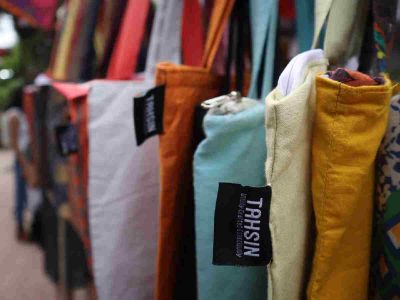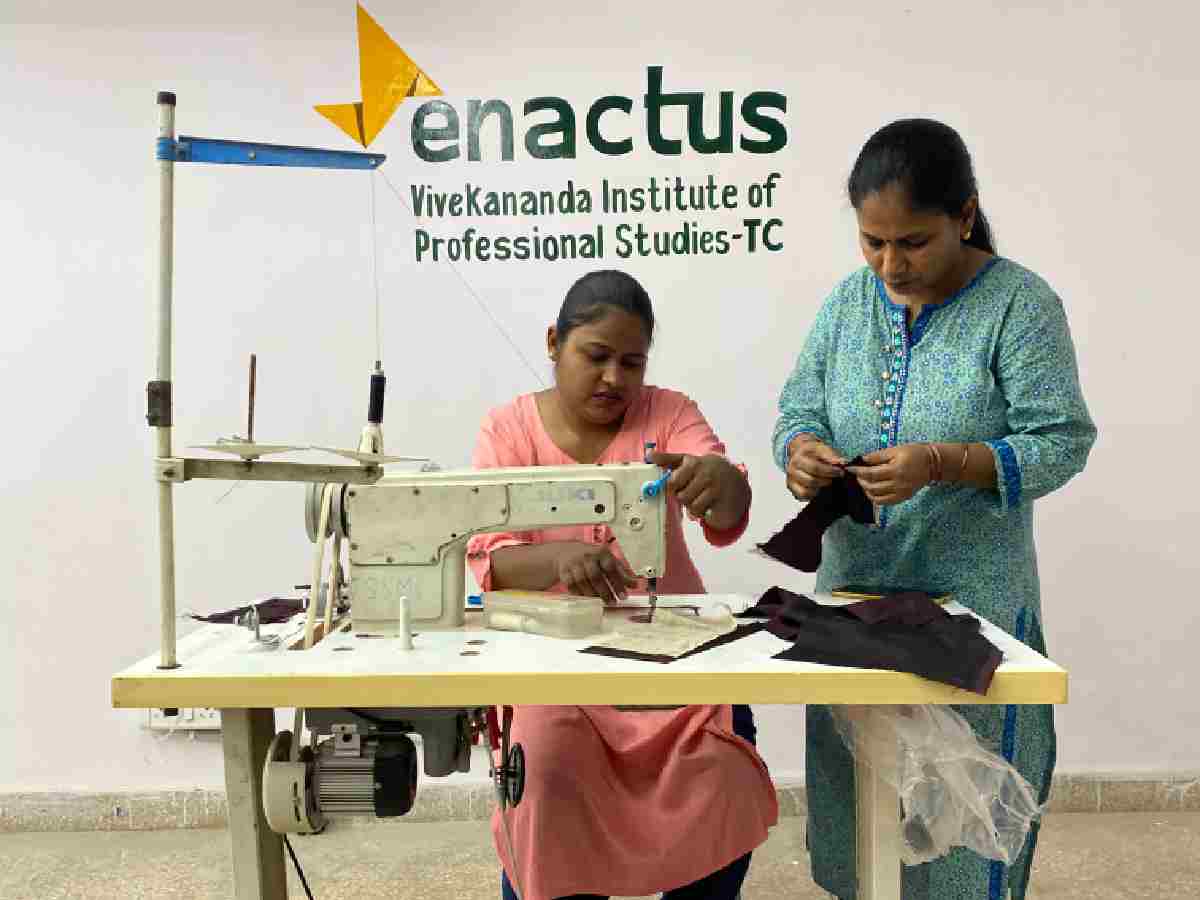by Srishti Chatterjee
A non-profit organisation, led by students, is changing the lives of an underprivileged community of women based in Delhi’s Kishangarh Village.
“I now earn three times more than I used to earn in a month. My husband feels immensely proud that I am not dependent on him anymore and earn for myself,” says 43-year-old Sunita, one of the 21,000 women who strive for a better future with Project Tahsin initiated by Enactus Vivekananda Institute of Professional Studies (VIPS).
In the fiscal year of 2023 to 2024, Project Tahsin generated a revenue of over Rs 5 lakh. The underprivileged women associated with the project saw an 87.5% increase in their monthly income.
At the same time, more than 1,200 Kg of textile waste has been efficiently utilised since its inception in 2022.
‘Tahsin’ is an Arabic word meaning “to improve, enhance, enrich”.
Project Tahsin includes using katran (small pieces of unused cloth) to make various products such as scrunchies, tote bags, earrings, among other items. This ensures that the textile waste generated daily goes through a cycle of change that does not put pressure on the earth and promotes a zero waste initiative.
More importantly, Project Tahsin employs destitute women from grassroots communities and helps them become financially independent.
“We can make so many things today because of Tahsin, which we weren’t able to make before,” says Jesintha Michael, or as the students call her with love, Jessi Aunty.
She is one of the first women to start working on Project Tahsin and has roped in several other women to be a part of this brilliant initiative.
The katran, or the unused textile pieces, is sourced from large textile factories and local tailors throughout Delhi-NCR. It is then sanitised to industry-fit standards and sent to the training centre in Kishangarh village.
The katran is then sorted into different patterns, colours, and styles according to the needs of the products made from them. The Product Development & Creativity team designs and upskills the women, who finally stitch the katran into tote bags, flap bags, scrunchies, earrings, pouches, and more.
The products are sanitised again to ensure a double-sanitisation process, once when the Katran is procured and when the products are ready to be sold in the market. Eventually, these products are sold at various kiosks and pop-up stalls located at key spots throughout Delhi-NCR and are also available online.
A team of students regulates the whole process, from the sourcing and sorting of the katran, to developing new product designs and ideas, as well as managing the marketing, sales, and all other entrepreneurial aspects of the project. This resolute and committed team of students works as the anchor that drives the success of Project Tahsin.
“At first, we were a little apprehensive of how we could use waste cloth to make something good, but then when we listened to how the material could form things such as tote bags and pouches, and how much value they hold. Now, I even advise other tailors, who don’t understand the value of katran, to save the pieces so they can be put to good use,” says Jesintha.
Project Tahsin has had a significant impact and it speaks through statistics. With over 20,000 hours dedicated by the ambitious students and hardworking women, this project has touched more than 21,000 lives since its inception, according to enactus.

Adding up to the sustainability factor, the packaging and labelling of all Tahsin products are made of cornstarch, promoting eco friendly consumption.
Project Tahsin also focusses on various Sustainable Development Goals laid out by the United Nations. Goal 5 — Gender Equality, Goal 8 — Decent Work and Economic Growth, Goal 10 — Reduced Inequalities, and Goal 12 — Responsible Consumption and Production are the four major goals that the students directly incorporate into the functioning of the initiative.
Today, the women associated with Tahsin have an independent source of income, access to a fully-equipped workshop and materials, exposure to new ideas, and support of a student-led organisation that is focussed on making the world a better place.





